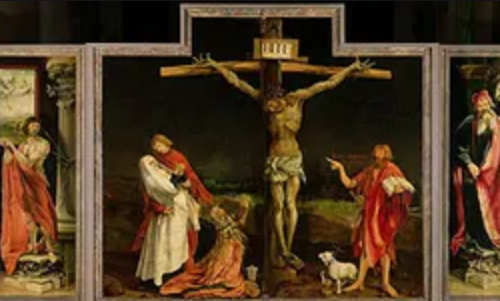This is a guest post by James Snell
Review – The Syrian Jihad: Al-Qaeda, the Islamic State and the Evolution of an Insurgency
Jihadism is in many ways the perfect enemy. It insists upon and mandates self-abnegation – even, in some instances, self-destruction; it despises much of what we consider essential for a just and free society; and it is ever planning and ever plotting to wrest many of civilisation’s most enduring accomplishments from our hands. The fact that its credo is often violent in nature is the icing on the cake. Because it is a perfect adversary, one which remains useful for caricaturists and demagogues, understanding this phenomenon is often perceived to be unimportant; extirpation, and the total destruction of its capacity for harm, is more likely to be the order of the day.
This analysis, however, is a partial one, and sincere, scholarly efforts to examine and to understand jihadism and its antecedents are increasingly vital – not only to act as a necessary tool for pre-empting atrocities and outrages from without, but also to counteract the impulses of our own politicians, which can veer towards demagoguery with frightening ease and rapidity.
Charles Lister’s book is an essential guide to the increasingly complex and worrying situation in Syria, which seems ever more likely to become a truly epoch-defining catastrophe. Such a statement may seem hyperbolic, but it is hardly unwarranted, and through Lister’s cool, deliberate analysis a terrible and opaque story is rendered comprehensible.
Of particular interest are the earliest chapters which deal with the genesis of Syria’s revolution, as well as the creation of the jihadist movement which would come to cast such a long and significant shadow over the conflict and the region.
As Lister elucidates, many of the organisations and terrorist groups which now stand as fearsome adversaries not only of the West but of the world began life as unremarkable outposts of Islamism. The feared Jabhat al-Nusra – al-Qaeda’s Syrian franchise – may have announced its existence with a spate of spectacular bombings, but it remained a distrusted fringe movement for much of the revolution’s second year. Other rebel groups, which held nationalist and secular ambitions – ideals which contrasted rather sharply with the pan-Islamic state proposed by al-Qaeda and its offshoots and imitators – simply had little in common with Nusra and those organisations in its mould.
The time came, however, when this changed; but it was largely forced upon Syria’s rebels, who turned to Nusra and the like when there was simply no support to be had from other quarters. After the systematic destruction of Homs at government hands, and the brutal siege of the Baba Amr district, the calculated brutality of the regime ‘fed into the kind of societal desperation and frustration that jihadists depend upon to find some measure of acceptance, if not support’.
After that particular onslaught, the last hundred or so FSA fighters in Baba Amr declared a ‘tactical retreat’ and fell back. Lister relates this to the growing role of jihadist ideology within the Syrian conflict, quoting one ‘former FSA fighter from rural Homs, who had watched as his city was taken [by the regime]’ to that effect. The man stated that he did not ‘blame the last fighters for giving up, anyone would have done the same, but the depression that came after made all of us welcome extremists. They were on our side, after all.’
It must also be understood that all of this took place in early 2012, long before the emergence of the Nusra Front as a serious fighting force, and several years before the advent – at least in Western eyes – of the existential threat which the Islamic State would be seen to pose. Also at the start of the book is a description of the origins of the revolution itself; Lister’s description is not the most detailed on this score, and nor is it the most emotive, but it cannot be denied that this delineation is vital for giving the lie to the regime line about the revolution being terroristic and jihadist in nature from the very beginning.
And with the revolution in an unfortunate but not unforeseen state – that of being overawed by Russian airpower and largely betrayed and forgotten by supposed international allies – this addition to the scholarly writing on the subject is a vital one. Now that forces professing loyalty to Assad have retaken Palmyra from ISIS – and the regime has milked this singular piece of good news for all it is worth – it pays to remember the role the regime itself had in the bringing into existence of much of the contemporary core of jihadist fighters in Syria – not least the Shiite jihadists who have rallied around Assad’s standard with help from Iran.
Lister’s prose is not only effective but affecting; he has a style which, like that of a precise novelist, is pared-down, understated, and yet compelling, and – as has been said to me by seasoned Syrian analysts – damning in its own way. His use of evidence is never less than enlightening and it is always readable; and the obviously extensive research which went into the creation of this volume never weighs too heavily on the narrative, which is at heart a fascinating – if deeply depressing – one.
The author conjures up the optimism and excitement of 2011 and 2012, when things seemed not just likely but fated to change, and to change for the better. When comparing this genuine sense of the possibility of progress to the sad and desperate scenes of urban destruction that Western observers have begun to see via their television screens and newspapers – but that Syrians have become accustomed to witnessing every day – the notion of perspective and the ideal of objectivity become even more important. Though it has seen a resurgence of late, with recent protests against ISIS, Nusra and Islamist influence more generally surfacing amid the regime’s brutal intervention, things are not looking good.
That mood of optimism – of genuine, unalloyed hope – has largely vanished now, but Lister’s impressive and detailed scholarship stands testament to those heady days, and to the fate of a nation which deserves so much better.


